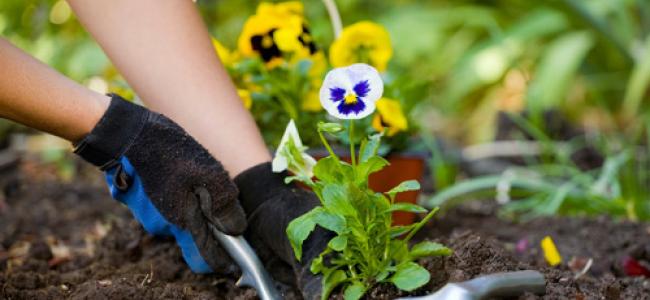Gardening tips for the winter and in the springs
We all love it when our homes look decorative from flowers and foliage. The benefits are also immense from creating a cool relaxing ambiance to medicinal value. Unfortunately, as much as we love our gardens, there comes a time when we can’t help but see our gardens deteriorate in winter and spring seasons of the year. It’s a sad feeling, but there is so much that can be done to maintain a healthy garden even under these conditions.
The onset of winter is often characterized with leaves tumbling down, which is not necessarily a bad thing. Fallen organic matter is food to soil micro-organisms and on decay it release nutrients to other plants. Uproot dying plants from the garden, they could be infected with diseases and might spread the virus to other plants. Also, prune some trees that have slimy and matty leaves affected from the frost.
Also, remember to mulch to your garden. Getting compost should not be a problem with the leaves falling, waste from cut down trees and even food waste. Spread the compost up to six inches. This enriches the soil with nutrients and keeps it from becoming depleted.
Part of the organic matter can help prevent excessive water loss. Lay a thin layer on bare soils to shield it from direct sunlight. However care should be taken not to use diseased mulch as it might spread pests and diseases to the healthy garden plants. An alternative to this is use of inorganic mulch which though might not spread diseases, might unfavorably raise soil temperatures.
For your perennial plants, cut them back after the first frost. Cutting too early might fire back, it is advisable to wait until the plant is dead to cut them back. Leave only the beautiful plants standing with pretty flowers and seed heads such as sunflower, coneflowers, thistles and the likes. These plants look cool in the winter and they attract beautiful insects like butterflies.
It won’t be long before spring sets in after winter, so you also need to be ready for the spring. This is the time to remove the winter mulch to prepare for the planting season. Remove the undecomposed waste to leave the top layer of the soil. You can also prune some of the plants if you did not do it in winter.
Gardening is an exciting activity. One only needs to pay attention to these tips and your garden and lawn will be full of life. Always be prepared for the seasons with the right equipment and procedures. Talk to our team of experts if you need help. They have a wide range of experience from small-scale orchards to long avenue plants.






